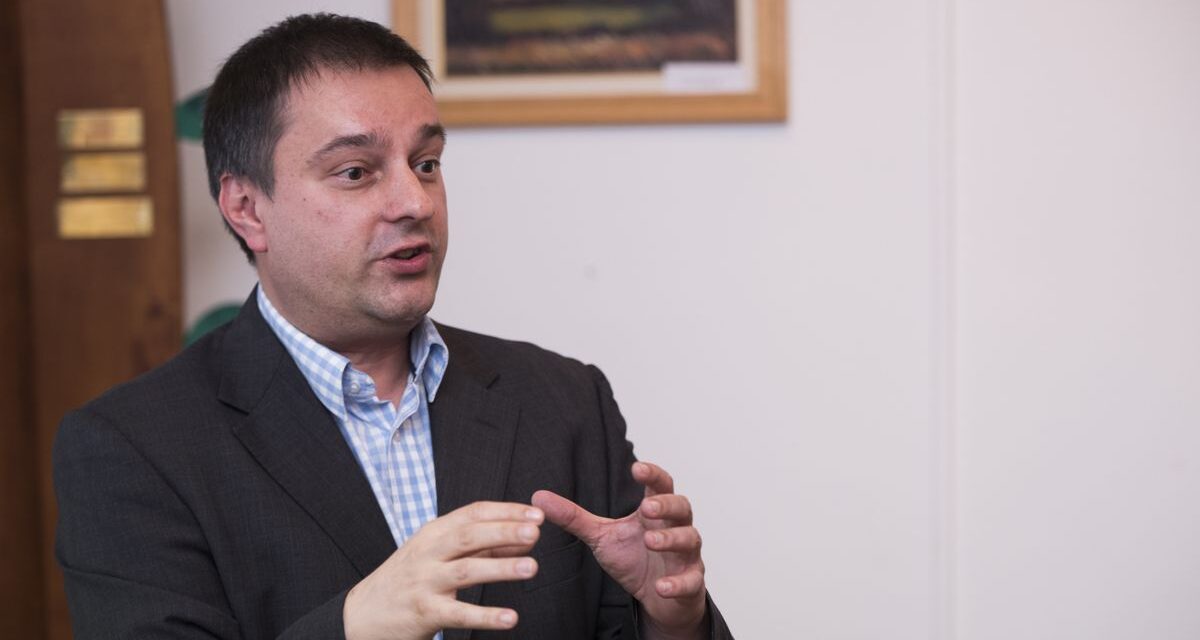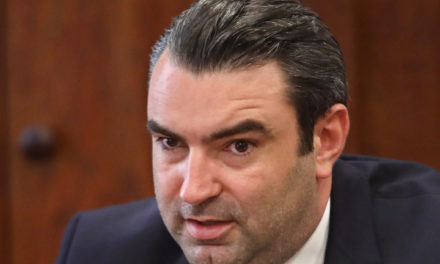After the Magdeburg attack, migration can be a campaign topic in Germany.
In Germany, the majority of the population already agrees with the Hungarian position on migration, and as a result of the terrorist attack in Magdeburg, those parties that aim to solve the immigration crisis instead of dealing with it can count on greater support, said political scientist Zoltán Kiszelly.
Eight years after the 2016 truck attack in Berlin, Germany was once again rocked by a brutal terrorist attack during the Christmas season. In the early evening hours of December 20, a fifty-year-old man born in Saudi Arabia drove an SUV into the crowd at the Christmas market in Magdeburg.
According to the investigators, the suspect acted alone, so far there is no sign of another perpetrator.
The critical security situation of the countries of the German-speaking countries is well illustrated by the fact that the threat of terrorism was continuous this year alone, just think of the failed assassination attempt against the Taylor Swift concert in Vienna, or the knife attacks in Mannheim and Solingen in Germany.
The investigation is still ongoing against the amok runner from Magdeburg, who was charged with multiple murders, attempted murder and serious bodily harm.
Political scientist Zoltán Kiszelly, director of political analysis at Századvég, highlighted three important factors in relation to the attack:
– We are talking about a new type of assassin, who represents a radically different direction than the previous attackers.
– The goals of the attacker are unknown, however, his business interests and psychological state can partly explain the motives.
– The German authorities could even have been influenced by political considerations when they ignored the Saudi warning.
The perpetrator, identified as Talib A., is an atheist dissident from Saudi Arabia who moved to Germany in 2006, but was registered as a refugee ten years later, at the height of the immigration crisis in 2016. He practiced as a psychiatrist and was not in the German criminal records.
Zoltán Kiszelly also confirmed the expert arguments that his follow-up was therefore a problem for the German authorities.
What seems certain about the perpetrator is that he considers Saudi Arabia to be his enemy.
According to the expert, if the German authorities were aware of this, it may arise that Berlin could therefore not treat Riyadh's warning with sufficient weight, saying that the Saudis are trying to blackmail someone for political reasons. All this is only a theoretical possibility.
According to Der Spiegel, Saudi Arabia warned Germany as early as 2023, as it was also written about, that the intention to save female asylum seekers may have motivated her to leave Islam. In the same article, they write that Talib A. regularly came into conflict with the German authorities and with registered ex-Muslim organizations in Germany. He collected resources online to publish his anti-Islamic book, which was never published.
According to Zoltán Kiszelly, the assailant also "married" the aforementioned literature at the AfD, but the party showed no interest in him either. In the light of all this, the declared political goal can be replaced by the mixing of the psychological state with the failure in writing and business life.
Germany was plagued by countless problems even before the assassination, just think of the unfolding economic crisis or the raging domestic political crisis - the government crisis also caused the failure of the chancellor, and next year there will be early elections.
It is still difficult to estimate the expected domestic political effects, as the country - including the political elite - is in a state of shock, certain signs are already visible as to which direction the pendulum may swing in the election race.
Although there are attempts to link the attacker to the anti-immigration right due to the circumstances already discussed, there is little chance of causing political damage to the AfD. This is also evident from the fact that after the attack, people with German nationalist and right-wing sentiments also held an anti-remigration demonstration, at which they demanded the deportation of migrants from Germany. In addition, there is another important factor.
Contrary to the vision of the mainstream parties, migration once again became the central theme of the campaign.
According to Zoltán Kiszelly, the majority in Germany represents the Hungarian position on migration, which is a problem for the mainstream parties, because they want to bring forward the implementation of the migration pact, which was originally supposed to come into force only from 2026. In addition, they want to make permanent the distribution of migrants according to mandatory quotas. For the Germans, they want to make this acceptable in such a way that Central Europe, including Hungary and the Czech Republic, takes its part in the distribution of the burden.
"At the same time, the Germans are fed up with the fact that there are 2 million migrants in the country, of which only 30 percent work," said Zoltán Kiszelly.
The German population is therefore not interested in spreading the immigration crisis, but in solving and eradicating it, and the attack on Magdeburg may drive a significant part of the voters towards the parties that promise this.
Cover photo: Zoltán Kiszelly
Source: Fejér Megyei Hírlap/Gábor Fehér













